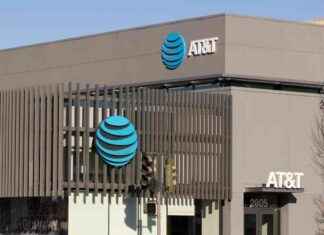A federal judge recommended early last week that the lawsuit brought by Cambridge Christian High School in Tampa against the Florida High School Athletic Association over public prayer at a state championship football game be dismissed.
4 Months Ago
5 Months Ago
3 Months Ago
The 36-page recommendation didn’t get a lot of attention, probably because it was so predictable. U,S. Magistrate Amanda Arnold Sansone said as much when she based her ruling on something known as Rule 12(b)(6).
For those who didn’t go to law school, it boiled down to her opinion that (paraphrasing here): Cambridge, you have no shot. The opinion can be appealed, but the judge rates the odds of success of that as basically non-existent. The law is clear.
This started with when Cambridge Christian advanced to the 2015 state title game in its division at Camping World Stadium in Orlando. The Lancers opposed another Christian school from Jacksonville for a wholesome joust among believers.
Both schools asked the FHSAA for permission to lead a pre-game prayer over the stadium public address system. They were told no, so Cambridge sued. The FHSAA argued that by being in charge of the game, it is a "state actor" in such situations, forbidden by state and federal law to endorse or promote any religion.
Any religion.
The judge agreed. I think any first-year law student would, too.
It should be noted that there was a lot of praying on that day in Orlando — in the locker rooms, in the stands, and on the field. Players prayed separately with their teams. Both teams prayed together on the field before and after the game. Perfectly fine. Using the stadium loudspeaker is what made the fine legal line that couldn’t be crossed.
I offer this disclaimer: I know several families whose sons and daughters attended Cambridge. The parents volunteered there. Best as I can tell, each one is a sparkling example of a life well lived. They chose this school because of its intensive religious emphasis.
The key word there is "chose."
Legally, though, the issue is what happens to those who choose something different.
Let’s suppose for the sake of discussion that an Islamic school joined the FHSAA and started a football team that made it to the state title game. Would the good people who support Cambridge in this matter be as eager to condone a pre-game loudspeaker prayer to Allah?
That’s what this all comes down to. What’s good for one school, in this case, is good for all. The fact that it was two Christian high schools playing in the title game is irrelevant.
In her ruling, the judge noted one legal precedent that concluded, "What to most believers may seem nothing more than a reasonable request that the nonbeliever respect their religious practices, in a school context may appear to the nonbeliever or dissenter to be an attempt to employ the machinery of the state to support religious orthodoxy."
Fancy words, simple concept.
So, I have an idea.
If Cambridge and similar schools want public community prayer before their state championship games, they should leave the FHSAA and form their own private statewide Christian association and stage their own playoffs. That way, they would be paying the rent on the stadium and could pray before every snap of the ball, if that is their choice.
Religious groups rent public schools for church services and other activities all the time. There was a Billy Graham revival at taxpayer-supported Raymond James Stadium in 1998. I was there, twice.
It was all good.
The law isn’t concerned where these things take place. The law is very concerned about who is in charge at the time. When the state is running the show, lawsuits like this don’t have a prayer.
Contact Joe Henderson at JoeHTampa@gmail.com
Our editors found this article on this site using Google and regenerated it for our readers.





